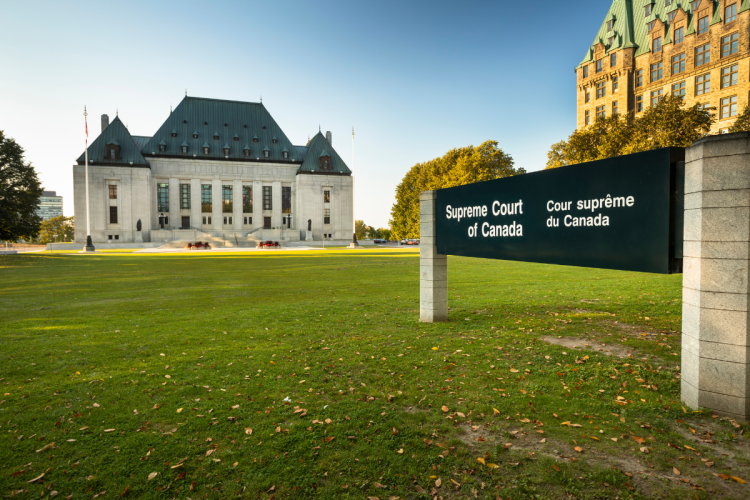Case Before SK Appeal Court May Impact Harvesting Rights of Every ‘Indian’ in Canada

The Saskatchewan Court of Appeal has re-opened the possibility that Indians from outside of Saskatchewan can exercise harvesting rights under the terms of treaty and the provisions of the National Resources Transfer Agreements (“NRTA”).
In R v Green, 2022 SKCA 92, the Court allowed the appeal and ordered a new trial between Albert Green and Blair Hill (the “Appellants”) and the Crown. The Court was called upon to determine whether the NRTA creates a right to hunt, fish and trap for food for all Indians that fall within the meaning of the Indian Act, or if it was limited to those numbered treaties which fall within provincial boundaries.
The Court found that:
- Dickson J.’s interpretation of paragraph 12 of the NRTA in R v Frank, [1978] 1 SCR 95 [Frank], is not determinative in this appeal; and
- The Appellants and the Crown must develop an appropriate evidentiary record that will allow a trial judge to interpret paragraph 12 of the NRTA in the manner mandated by R v Blais, 2003 SCC 44 [Blais].
Background
The Appellants reside in Ontario and are members of the Six Nations First Nation, whose treaty areas falls outside of Saskatchewan. They were charged with offences under The Wildlife Act for hunting in a Saskatchewan provincial park.
The Appellants argued they are Indians within the meaning of the Indian Act, and were exercising their Treaty rights on lands which they have a legal right of access pursuant to paragraph 12 of the NRTA. However, the Crown argued that the Appellants were not “Indians” within the meaning of paragraph 12 of the NRTA.
Paragraph 12 of the NRTA states:
Indian Reserves
…
- In order to secure to the Indians of the Province the continuance of the supply of game and fish for their support and subsistence, Canada agrees that the laws respecting game in force in the Province from time to time shall apply to the Indians within the boundaries thereof, provided, however, that the said Indians shall have the right, which the Province hereby assures to them, of hunting, trapping and fishing game and fish for food at all seasons of the year on all unoccupied Crown lands and on any other lands to which the said Indians may have a right of access.
The Lower Court’s Decision
At the Provincial Court, the trial judge acquitted the Appellants from their charges. The trial judge found that the Appellants fell within the meaning of “Indian” in paragraph 12 of the NRTA by applying the analysis in Frank. In particular, Dickson J. in Frank interprets paragraph 12 as “Indians within the boundaries” mean all Indians within the boundaries of the Province, and not just some of the Indians within such boundaries.
The Crown appealed this decision to the Court of Queen’s Bench. Here, the appeal judge found that the trial judge interpreted paragraph 12 of the NRTA too broadly and made an error by acquitting the Appellants. Thus, the appeal judge entered convictions against the Appellants because paragraph 12 of the NRTA applies only to “Indians attached to Treaty 2, 4, 5, 6, 7, 8 or 10 lands.”
The Appellants appealed to the Saskatchewan Court of Appeal based on the lower court’s interpretation of paragraph 12 of the NRTA.
Court of Appeal’s Decision
The Court of Appeal revisited the interpretation of the NRTA as discussed in Frank and Blais. Ultimately, the Court allowed the appeal and ordered a new trial because the lower court judges proceeded with the trial and appeal without sufficient evidence on the record to properly interpret paragraph 12 of the NRTA in the manner mandated by Blais.
The Court concluded that the interpretation of paragraph 12 of the NRTA found in Frank did not dictate the outcome of this appeal. Among other reasons, Frank dealt with a person who lived on a Treaty 6 reserve in Saskatchewan and was hunting on Treaty 6 in Alberta, factual circumstances that significantly differ from this case.
Further, the Court reaffirmed that the necessary approach to interpret the NRTA is found in Blais. The starting point for statutes of constitutional force must be interpreted in accordance with the meaning of its words, and be considered in context and with a view to the purpose they were intended to serve. Since, the NRTA is a constitutional document, it must be interpreted through its own unique historical, contextual and grammatical lens, and if ambiguity exists, the uncertainty will be resolved in favour of the Indigenous claimants.
The Court determined that Frank did not apply and there was not enough evidence on appeal to undergoes a proper Blais analysis – thus, the case must be sent back to trial.
Key Takeaways
This case requires a proper interpretation of a constitutional agreement, the NRTA. For this reason, it has the potential to impact the rights of every ‘Indian’, within the meaning of the Indian Act, in Canada and their hunting, fighting and trapping rights in the provinces of Alberta, Saskatchewan and Manitoba. This case is being sent back to trial for the Appellants and the Crown to develop an appropriate and thorough evidentiary record. The result of this trial will be set a foundation for how Treaty rights will be reviewed and analyzed within the NRTA.
This case also underscores the need for a strong evidentiary record for NRTA cases including Elder evidence and historical information about the negotiation, drafting or purpose of the NRTA.
The MLT Aikins Indigenous practice group lawyers will watch for the result of the R v Green trial and any further developments.
Note: This article is of a general nature only and is not exhaustive of all possible legal rights or remedies. In addition, laws may change over time and should be interpreted only in the context of particular circumstances such that these materials are not intended to be relied upon or taken as legal advice or opinion. Readers should consult a legal professional for specific advice in any particular situation.





